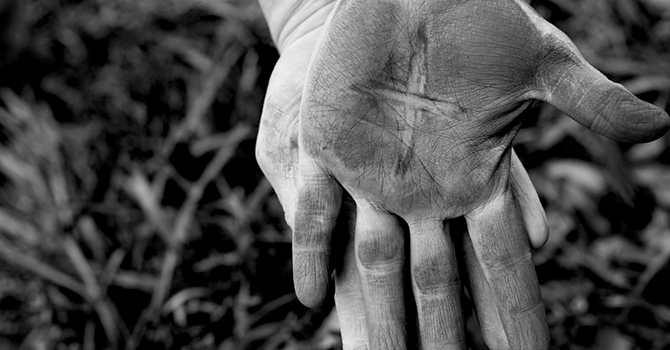Blessed are those who mourn,
For they shall be comforted.
Matthew 5:4 (NKJV)
I’m sick of mourning — sick and tired, to be more precise. I feel this deeply.
For nearly two years, it seems that all I have done is mourn, and even that mourning has not been possible in ways that are familiar and comforting.
I’m tired of offering committals into the front-facing camera of my laptop during a Zoom call.
I’m tired of small gatherings and to-go box lunches that ill-serve as replacements for community consolation and the comfort of shared repasts.
I’m tired of having a sick and shut-in list and a COVID-19 care list and of seeing many named there leave them through death instead of healing.
I’m tired of having to argue the benefits of testing and vaccinations and the Christian commitment to community and loving our neighbor.
Out of this weariness, I’m struggling to muster any energy and excitement about Ash Wednesday. Maybe attaching enthusiasm to Ash Wednesday isn’t fair to begin with. It is a day that does not usually garner excitement.
At least in the past I’ve looked forward to the discipline that is initiated on that day, and to the time of repentance and reflection that it signals as the beginning of Lent.
But I don’t want to repent right now, and I really don’t want to reflect much more. Many of us have been in our homes doing that a lot for two years, and after all the loss, I don’t want to give up anything for the next 40 days.
If I can be honest, I want to tell Ash Wednesday to keep its ashes and its mourning, because I’ve done enough. Our spirits have fasted through two Lents and the seasons in between. Yet even writing this, I can’t shake Jesus’ words,
Blessed are those who mourn,
For they shall be comforted.
How, Jesus? When, Jesus?
Where does this comfort that you promise come from? Is it from a changing of the circumstances surrounding my mourning? That can’t be it. Whether I’m mourning the continued pandemic or another loss of life, I don’t see any immediate changes ahead. Taken with the sin of greed that has extended this crisis longer than necessary, neither changing government nor changing policy could have immediate effect on such massive ills.
Is the comfort coming from your presence, Lord? Of course there’s comfort in knowing and feeling your arms around me! I pray and worship and know that you are there, but something tells me that is not the comfort described here.
Maybe this comfort is more than what can be attained through singing my favorite hymn or listening to a good sermon. As much as I’m sick of it, as much as I don’t want to do it anymore, maybe the comfort will come from the mourning itself. Maybe even more mourning, or at least better mourning, is in order.
Ecclesiastes 7:2-3 says that it is
Better to go to the house of mourning
Than to go to the house of feasting,
For that is the end of all men;
And the living will take it to heart.
Sorrow is better than laughter,
For by a sad countenance the heart is made better.
Here in Ecclesiastes, the preacher is suggesting that the house of mourning, the place where people would go to actively and purposely mourn for at least seven days after someone’s death, a place of quiet and intentional mourning, that this place or state of being is better than being in a place of joy and laughter.
The suggestion is that intentionally moving through the sorrow is better than laughing or even “praising our way through,” because our sadness will make our hearts better.
I love Eugene Peterson’s paraphrase of the third verse in The Message: The Bible in Contemporary Language:
Crying is better than laughing.
It blotches the face but it scours the heart.
He captures the benefit of mourning, whether it be over personal loss, sin in this world or a seemingly perpetual pandemic. It does the work of cleansing.
The idea of scouring isn’t pleasant. It brings to mind all the times I’ve had to scrub gunk off pots and pans while washing dishes. But if these last two years have done anything, they’ve piled up all kinds of nastiness on our hearts — grief, loneliness, bitterness, sadness. There’s no question that the work of moving through it all is painful. It’s also necessary, if we’re to make progress and find a pathway toward some semblance of peace after the pandemic is over, or at least contained.
Our comfort will come not from the malaise of mourning but instead through its intentional practice that will help clear away two years of accumulated trauma. There is no rushing through something so deeply experienced.
May this Ash Wednesday and the Lenten season it inaugurates be a time in which the discipline of mourning provides a pathway to a sustained comfort incubated amid the pressures of the world. May our liturgical and communal discipline foster practices that help us work our way through our collective grief. And may the peace of God that is beyond our understanding be our guide.














